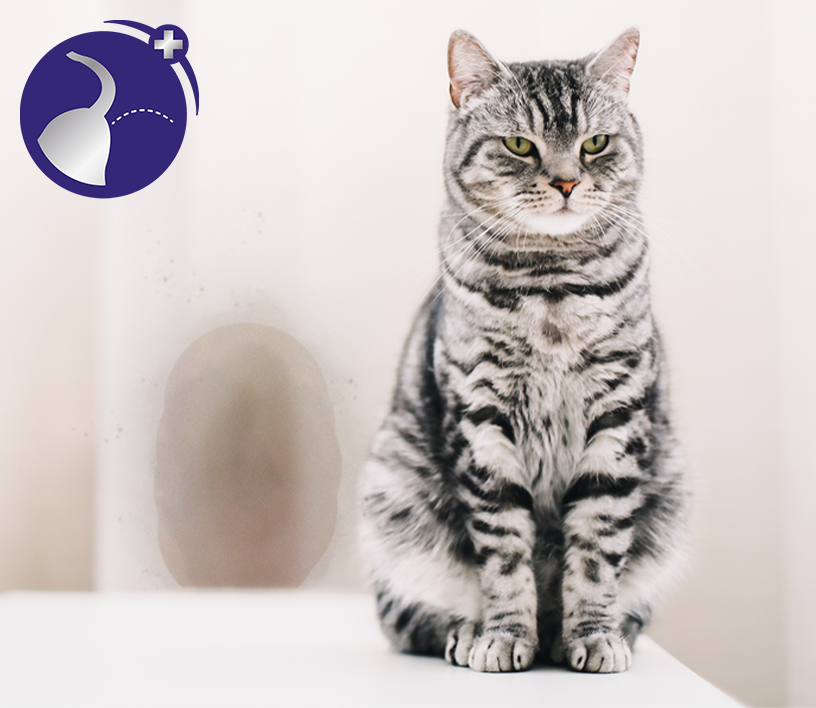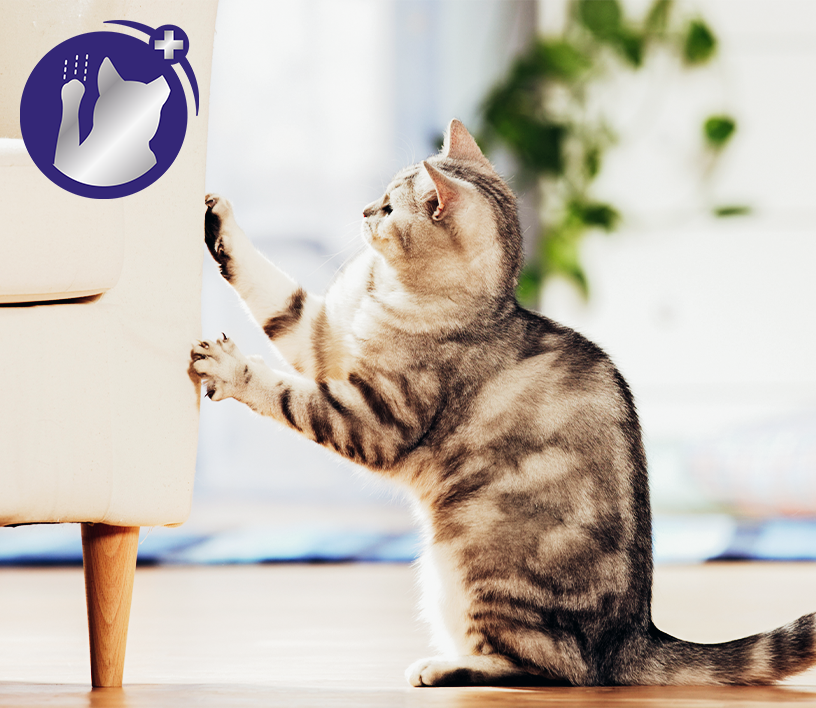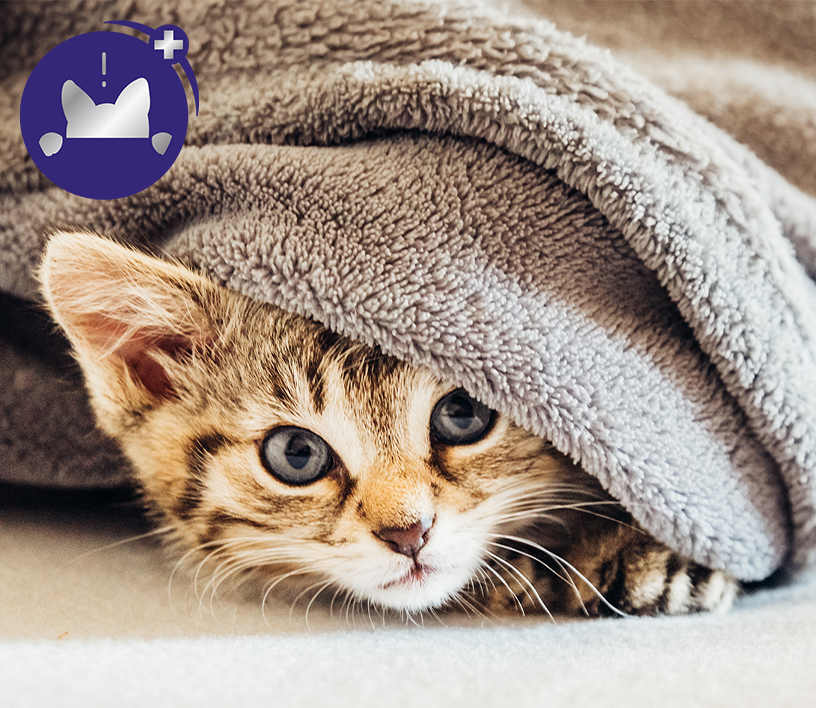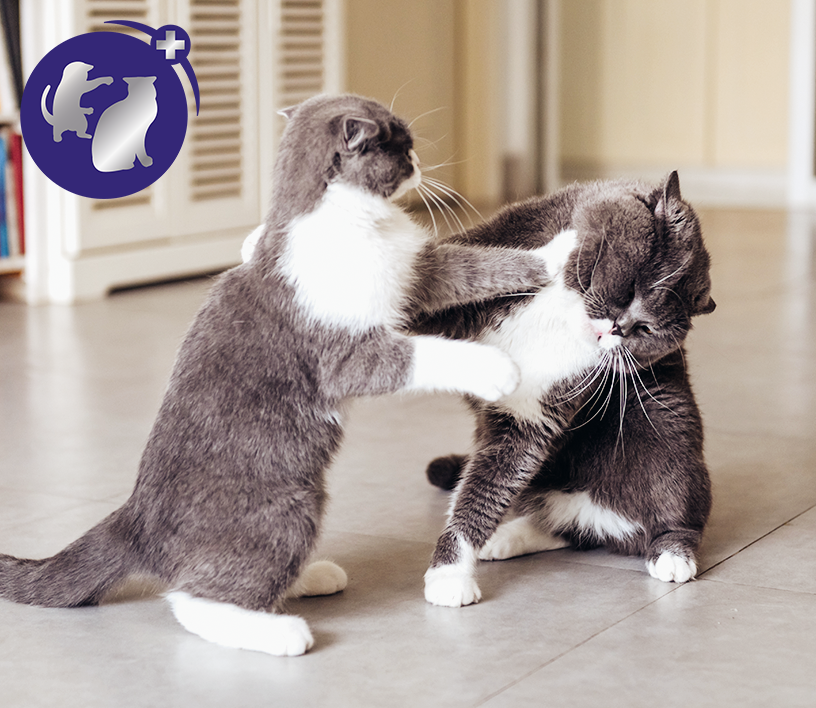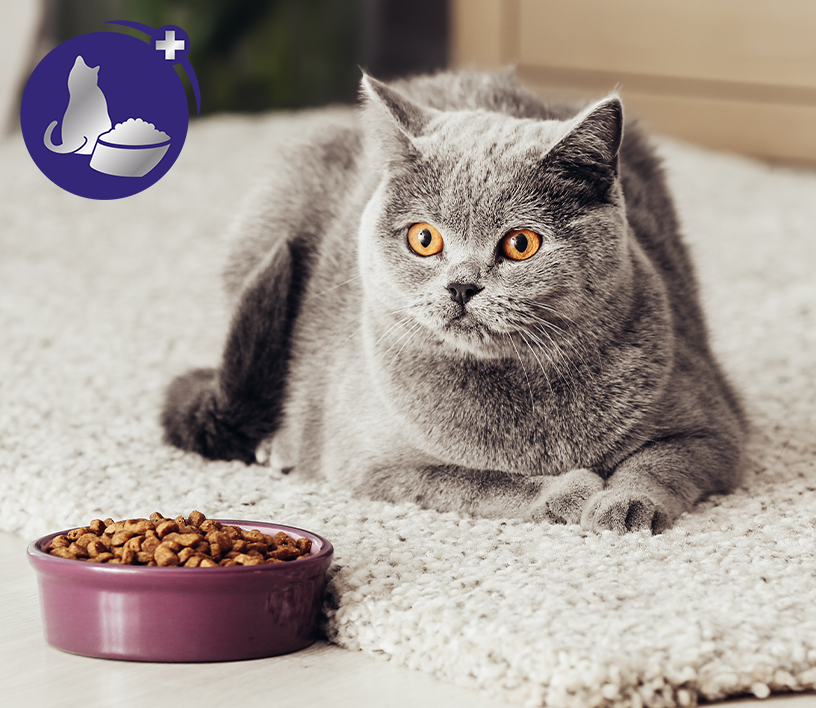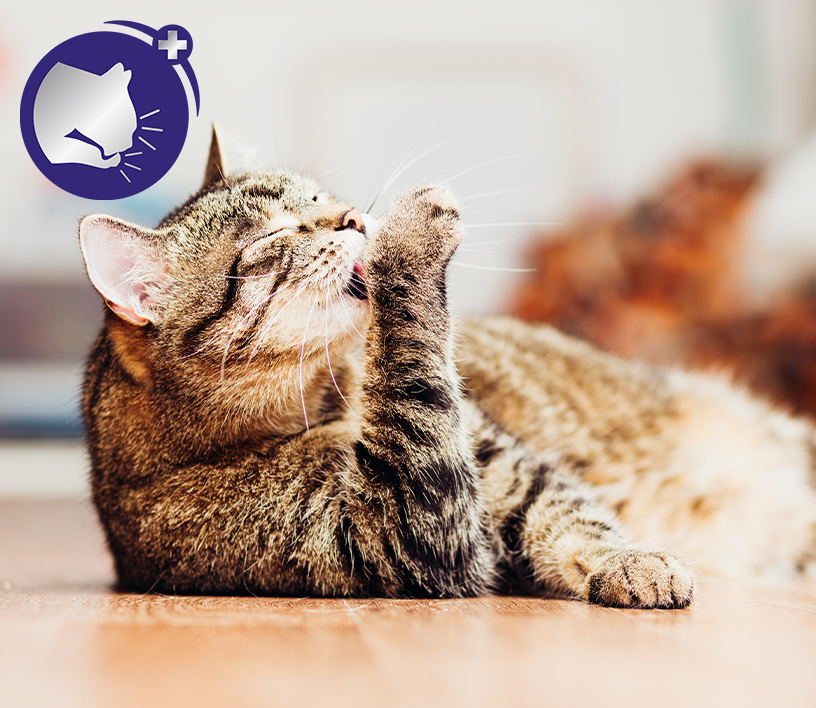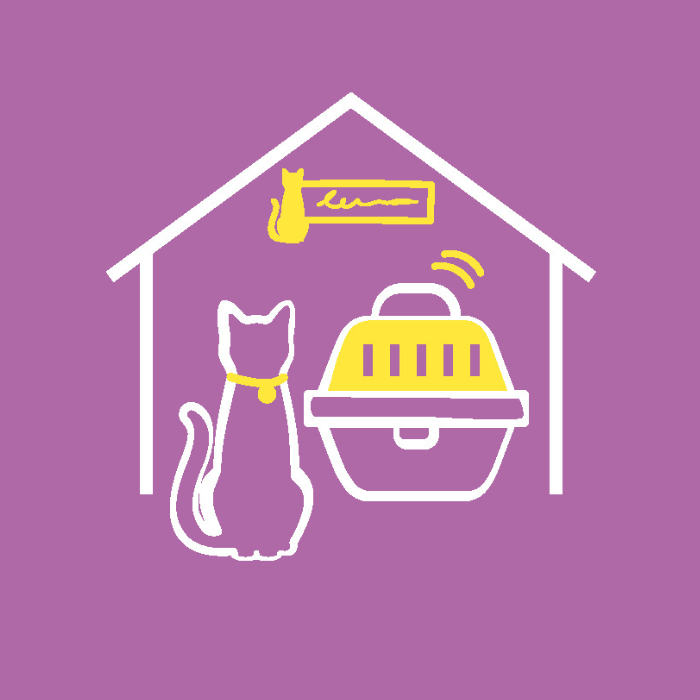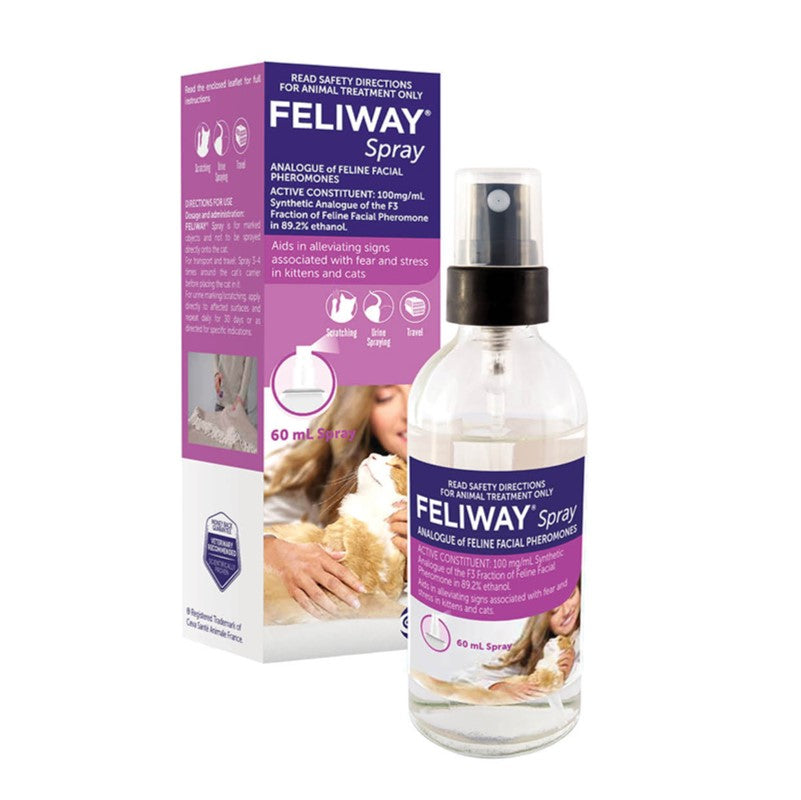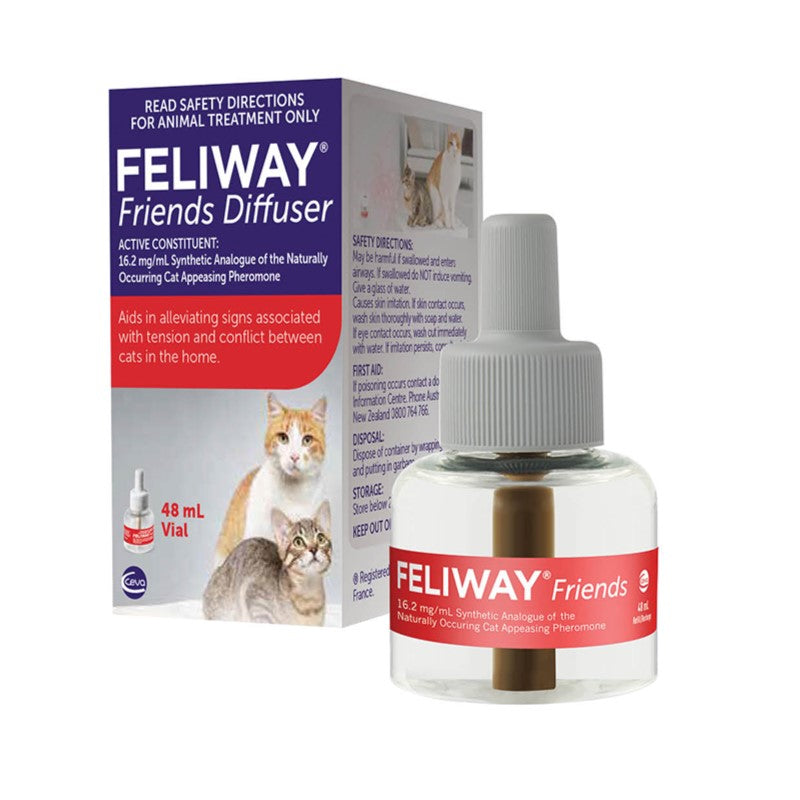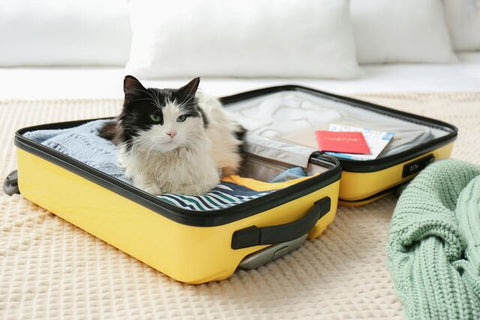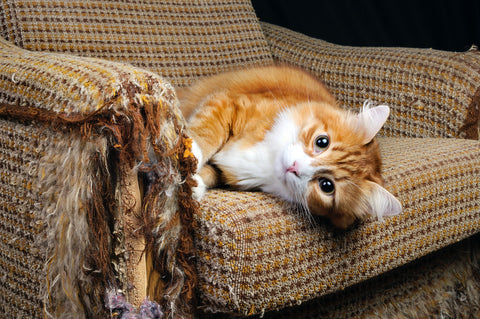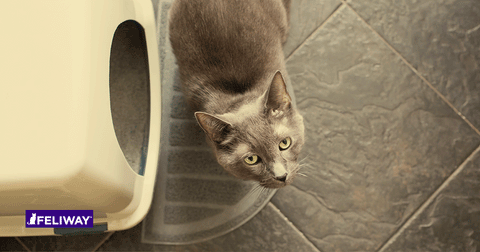
Preparing cats for the end of lockdown
Living in lockdown has brought us many new challenges with very little preparation on how to cope. Change of any sort can be stressful, especially when it is out of our control and the same can be said for our cats. Elizabeth Waring from International Cat Care has given us some tips to help our cats cope with all of the changes.
CHANGES IN ROUTINE ARE OFTEN STRESSFUL FOR CATS
Firstly, it is important to recognise that changes to their routine caused by us being at home more can cause stress for cats. Cats are often very subtle at showing signs that they are stressed so behaviours to look for that may indicate they are not coping include hiding away, spending more time outside if they have access, withdrawing from interacting with you, increased vocalisation, swatting at your hands or attacking you when you try to interact and any other changes in their normal behaviours such as eating, grooming, toileting or play. If you notice any changes in your cat's habits it can also be an indicator of pain or other medical condition, which can be brought on or exacerbated by stress, so it is important to always speak to your vet if you are concerned.
Cats are all individuals and how they cope with change will depend on the cat. Whilst some cats will struggle to adapt, others will simply take it all in their stride. You may actually find your cat is increasingly seeking you out for attention, as for some cats having their owner at home more is a positive thing, especially if they enjoy human attention. It can be easy for us to get distracted from work and give into demands for interaction and so cats can learn quickly that certain actions will illicit positive rewards such as fuss, play or even food.
TIPS TO HELP CATS COPE
No matter how our cats have reacted to the changes lockdown has brought we still need to consider how to help our cats cope for the duration, as well as preparing them for future changes when we start to return to normality. The following provides some useful tips to help your cat cope in these difficult times.
1. Provide them with plenty of safe places to hide away and get up high. When faced with stress cats will often choose to retreat and hide away in areas they consider to be safe and secure. Often these areas involve the cat being able to get up high as this allows them to observe anything they may consider threatening from a place of safety, for example children or other pets in the home. Providing a variety and choice of resting areas in different areas, both high up and at ground level ensures your cat can choose where they feel most comfortable. If you have more than one cat, making sure they each have their own safe places is very important. Usually quiet, private areas are preferred so consider where this may currently be in your home. Providing resting areas on top of wardrobes, under beds, cardboard boxes turned on their side or cat trees (tall scratch posts with a number of high resting places) are just some of the options you can provide.
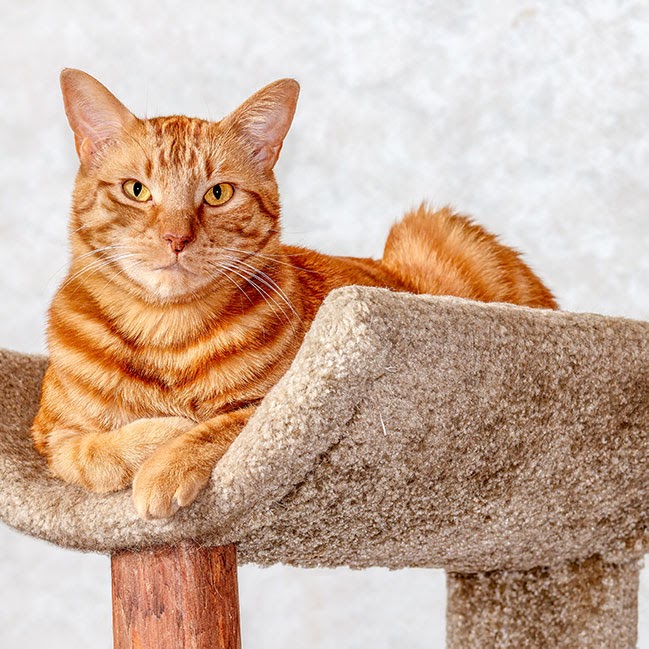
2. Give your cat time and space to themselves. If your cat has chosen to hide or rest somewhere, leave them to it. Cats sleep for large periods of the day and so there may be the temptation to try and interact with them whilst they sleep, especially from children. Teach them that interactions should always be initiated by the cat and allow your cat to get as much rest as they want.
3. Keep their routine and environment as predictable as possible.
- Whilst we understand why there needs to be changes to our daily routines, our cats are unaware of these reasons. Try where possible to keep to your normal working patterns. This in turn helps to keep your cat's daily routine as normal as possible and helps them to predict when things are likely to happen such as feeding and play times, as well as quieter and busier times of the day.
- With lots of time on our hands our plans can be to try and do as much DIY as possible but try to avoid too many changes all at once and focus on smaller jobs or redecorating one room at a time as the noise and smell (from paint, white spirit etc.) in particular can be stressful for our cats who have a very sensitive sense of smell.
- Once you know when life will start to change again as we transition back into a more normal pattern, try to think ahead and make any future changes to daily routines as gradual as possible.
4. Keep your interactions with your cat consistent.
- Always allow your cat to approach you rather than forcing interactions on them. Call their name and extend your hand for them to rub on gently. Keep interactions short and sweet- use a 3 second rule and withdraw your hand after this time. Only if your cat chooses to rub on you and approach you again after this point should you give them another short bout of attention.
- Focus strokes on areas such as the cheeks and chin, areas which we know cats prefer to be touched and avoid areas such as their back, tail, tummy and feet. Avoid picking your cat up or overwhelming them with cuddles. These sorts of behaviours can be scary for your cat and can make them less keen to interact with you in future.
- Watch for signs that your cat is enjoying the attention which can include purring, facial rubbing on you and having their tail up. Some of the signs that indicate your cat may want to be left alone include their ears turning back, their bodies tensing up, their tail twitching and swatting at or nipping your hands. Stop all interactions if you see any of these behaviours and move away. Don't punish your cat as this can make them feel anxious.
- Stick to your normal patterns of interaction. Think about the times of day you would usually interact with your cat and stick to these times. This will help your cat to not expect constant access to you for attention when you return to work
- If your cat enjoys the extra time you are at home and seeks you out whilst you work, provide areas for your cat to sleep near you whilst you are working.

An example of a cat bed set up next to their owner's work area.
©Elizabeth Waring.
5. Teach children the best way to interact with your cat. This is a perfect time to teach your children to interact appropriately with your cat. Teach them not to disturb your cat when they are in their safe places or resting. Wand toys are great for allowing children a 'hands off' way to interact with cats without having to touch them, as many cats can find handling by children frightening.
6. Ensure they can access all of their key resources. With changes in working patterns, areas of the home that were previously quiet during the day may now be busy. Think about where your cat's resources are currently located, such as food and water bowls, litter trays, resting areas and scratch posts. Can your cat still easily access them and are they somewhere quiet? If not, rather than move resources, try to add extra in easily accessible areas. Cats living with other cats should have as many resources as there are cats plus an extra one available as a rule of thumb. Make sure that your cat can also still comfortably exit and enter the house if they are used to having outside access. If this now means crossing the busy kitchen, for example, try to provide an alternative route outside.
7. Provide set times for play. Play is hugely important for cats and can help alleviate stress. Predictable sessions should be scheduled at the same time each day, perhaps once you have finished working for the day or after home schooling has finished. Set times helps prevent your cat from pestering you for play during the day. As mentioned, wand toys are great for hands off play (especially good for children to play with cats) and provide a great outlet for normal predatory behaviour. Keep sessions short as this mimics a cat's hunting pattern and vary up the toys used to keep it interesting for your cat.

8. Provide added enrichment such as food puzzles, cardboard boxes, paper bags (without the handles) and toys your cat can play with alone, so they don't feel the need to always ask you for attention when they are looking for something to do. Your cat may relish the fact that you are available to provide them with extra attention during the day. Try not to always give in to demands for attention and instead provide them with something else to do to keep them occupied. Food puzzles are a great way for engaging their minds. Introduce them slowly, on the easiest setting and perhaps use treats to encourage them if needed (take care not to overfeed and reduce their daily food allowance if treats are used). You should be able to use their normal food once they have got the hang of it! Keep up these enrichments even once lockdown has ended as they provide your cat with a great source of enrichment and can help to prevent boredom once they are spending more time alone again.
Follow our latest news with tips and tricks by subscribing to our newsletter now.
If you are staying home with your cat, share your stories on facebook with the #feliwayathome with us.
Stay safe!
The FELIWAY team
#feliwayathome
{{cta('7f864583-444a-4927-bb65-876793e0ce6e')}}
